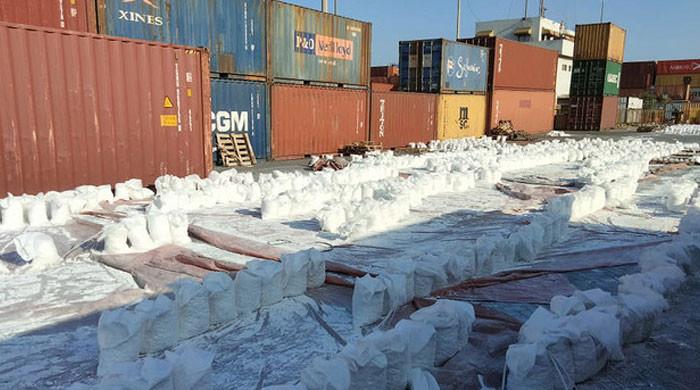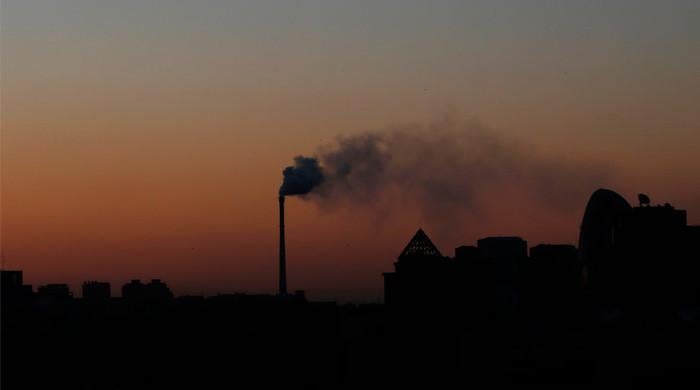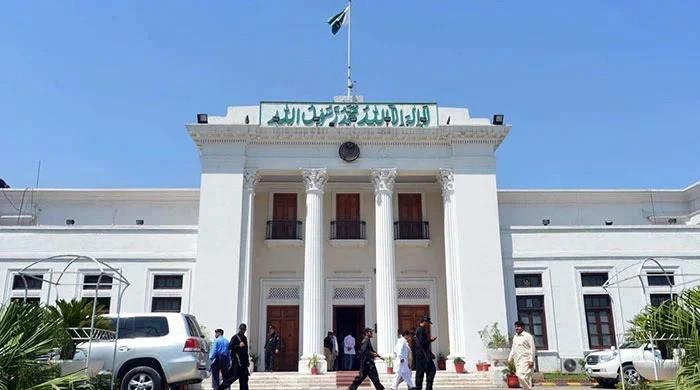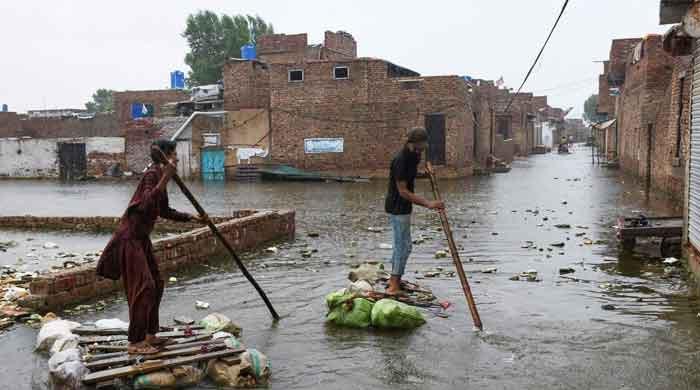Hamas-Israel War: Amid brazen US bias, China must rise to occasion
Regional powers of Asia must urge parties to engage in dialogue to seek permanent solutions and not to act like the US that is backing a state-led war against non-state group
October 10, 2023
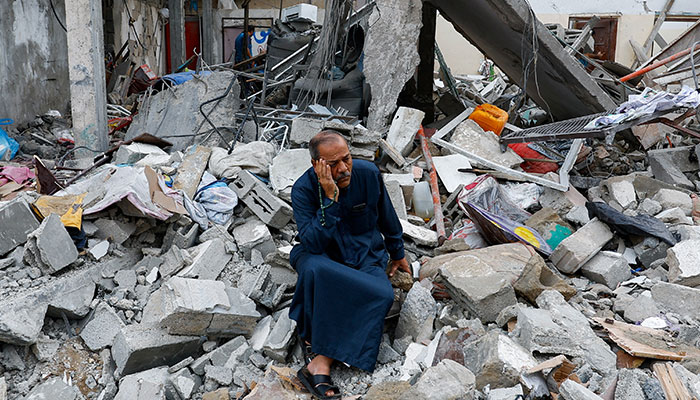
The future of the latest Palestine-Israel violence cannot be foretold. However, it is comprehended that were the major countries in the international system to join the fray and take sides rather than conduct mediation to end the hostilities, it would be detrimental and could potentially drag other nations into conflict.
The United States, once considered, and played a role in ending the Middle Eastern conflicts — notably the Israeli rapprochement to Egypt of the 1970s — is now embracing a posture of some regional state that always backed its ally regardless of taking into account the broader picture.
The United States is nowhere to be seen in the diplomatic activity of the region, resolving conflicts and restoring stability and peace, rather it is China, which emerged as a supplanting force. Saudi-Iran reconciliation in March is one such instance.
The notion indeed holds credence that such hostile conditions can drag large countries into a situation where a meagre act by a country is perceived as a kind of aggression against another. In that case, great powers like the United States must refrain from backing Israel.
As Hamas’s considerable response to the continued Israeli aggression attracted worldwide condemnation, the allies of Tel Aviv are categorically turning a blind eye to the Zionist atrocities, brutality and oppression against Palestinians. The act is not being considered as a response but rather a preemption by the Palestinian resistance group.
It is worth noting what led the group to go all-out against the occupation of Israel despite being cognisant that the adversary possesses the sheer amount of resources, technology and international support, not to mention the balance of forces on the ground.
The rationale behind the Hamas attack can be understood in the words of the group’s military commander Muhammad Al-Deif who dubbed the operation “Al-Aqsa Storm”. He said the assault on Israel was a response to attacks on women, the desecration of the al-Aqsa mosque in Jerusalem and the ongoing siege of Gaza.
He also said the group had decided to launch an “operation” so that “the enemy would understand that the time of their rampaging without accountability has ended.”
The US has decided — without opting for meaningfully asking for an immediate ceasefire — that it would provide munitions to Israel and that its security assistance will commence from Sunday. The aid will consist of fighter jets, a carrier strike group, which includes the USS Gerald R Ford and ships and ammunition.
There was no statement or any activism offered by the so-called global mediator to assert its exceptionalism and initiate a substantial discussion on the possibility that the hostilities could be ceased.
No responsible statesmanship has so far been exhibited by the US President Joe Biden, its Secretary of State Antony Blinken or the national security advisor Jake Sullivan. Being hawkish is not always a good choice for a responsible great power, especially in these volatile times when the Cold War mentality is resurging, this time, for China.
The 80-year-old president is fighting his case in front of the public for his age. It was not expected that such responses from the US would make their way since it always claimed peace, stability, order etc. Such unpopular backing has begun isolating the US from the global diplomatic scene and allowed China to launch its footprints.
Citing the current hostilities, Iran has also supported the Palestinians and, presumably gave a go-ahead to its supporting groups in the neighbouring regions to give tough time to Israel. In this situation, were it to escalate to a point of no return where Tehran’s and Washington’s forces engage in confrontation, the regional order would potentially be destroyed.
Because such delicate situations spark the possibility of escalating confrontation among the adversaries. The US aid to Israel will do no good but to ignite further anti-American sentiments among the Muslim countries.
To this writing, media reports are indicating that as many as 900 Israeli lives have been claimed with around 600 Palestinians martyred, leaving thousands injured on both sides since the Hamas’s much-awaited response to Tel Aviv’s unabated atrocities.
The United States was considerably active in laying down the groundwork for the Arab-Israel normalisation, with Saudi Arabia in the lead for restoration, as it seems fit for its national interest.
Israeli diplomatic activism to solve the dilemma of its security, tapping the leader of the Muslim world, is being worked out in a somewhat artificial manner, ignoring the foundational principle of taking into consideration the Palestinian State and the two-state solution under the United Nations Security Council Resolutions.
These Israeli attempts to isolate the innocent victims of atrocities in the West Bank and Gaza would not materialise and would not bring long-term permanent stability to the region but further suppression, and legitimising the oppression against the smaller forces in Palestine.
The US also highlighted a flawed motivation behind Hamas's attack with Blinken explaining why the Palestinian resistance group launched its attack. He said: “Look, who opposes normalisation? Hamas, Hezbollah, Iran.
So it wouldn’t be a surprise that part of the motivation may have been to disrupt efforts to bring Saudi Arabia and Israel together, along with other countries that may be interested in normalising relations with Israel. So that’s certainly a factor… but if we could achieve it, it would bring even greater stability to the region. It would move the region away from decades of turmoil, and decades of conflict.
It is certainly evident how did it bring stability even without being completed. This normalisation is resulting in a paradoxical step that could even cause further instability in the region if, on a priority basis, the Palestinian issue is not resolved.
Otherwise, the whole normalisation edifice without the Palestinians in the equation would soon collapse, or even worse, increase brutality on the innocent Muslims of that tiny occupied country.
What is the way forward? One thing is unequivocal; a participating entity in the hostilities cannot exercise successful mediation, and can’t become an honest broker. Therefore, the inclination of the US towards Israel certainly does not make it a broker.
Now, a country that enjoys the role of a neutral is China. And it is currently observing the situation and seeing it unravelling so that the best choice can be made.
China should initiate back-channelling as it did in the case of Iran and Saudi — despite the incomparable situation. It should prepare a groundwork to bring both parties to the negotiation table lest the conflict spiral into other areas and pose a large-scale threat to the principal actors in international politics.
Beijing should persuade both parties to first set conditions about how the dialogue could be initiated and then let the process lead to the materialisation of the Israel-Palestine issue.
The current situation in the Middle East should be seen with a broader spectrum of international alliances, changing situations, historical conduct and emerging trends in military capabilities. Seeking solutions to such contested issues is not easy when the positions held are rigid in nature.
Nonetheless, conventional wisdom suggests what could lead after the war if it escalated, and history is abundant of such situations where small conflicts dragged large states into a full-blown war.
Therefore, responsible leadership and statesmanship are required to solve the crisis and prevent it from reaching the point of no return.
It is incumbent upon the regional powers of Asia to take a step further and urge parties to engage in dialogue so as to seek permanent solutions and not to act like the US that is backing a full-fledged war by a state, against a non-state group. If the situation persists, with rigidity in international alliances and positions, further deterioration will follow.
Saad Aalam Angaria is a staffer at Geo.tv. He tweets @imsaadangaria
Disclaimer: The viewpoints expressed in this piece are the writer's own and don't necessarily reflect Geo.tv's editorial policy





